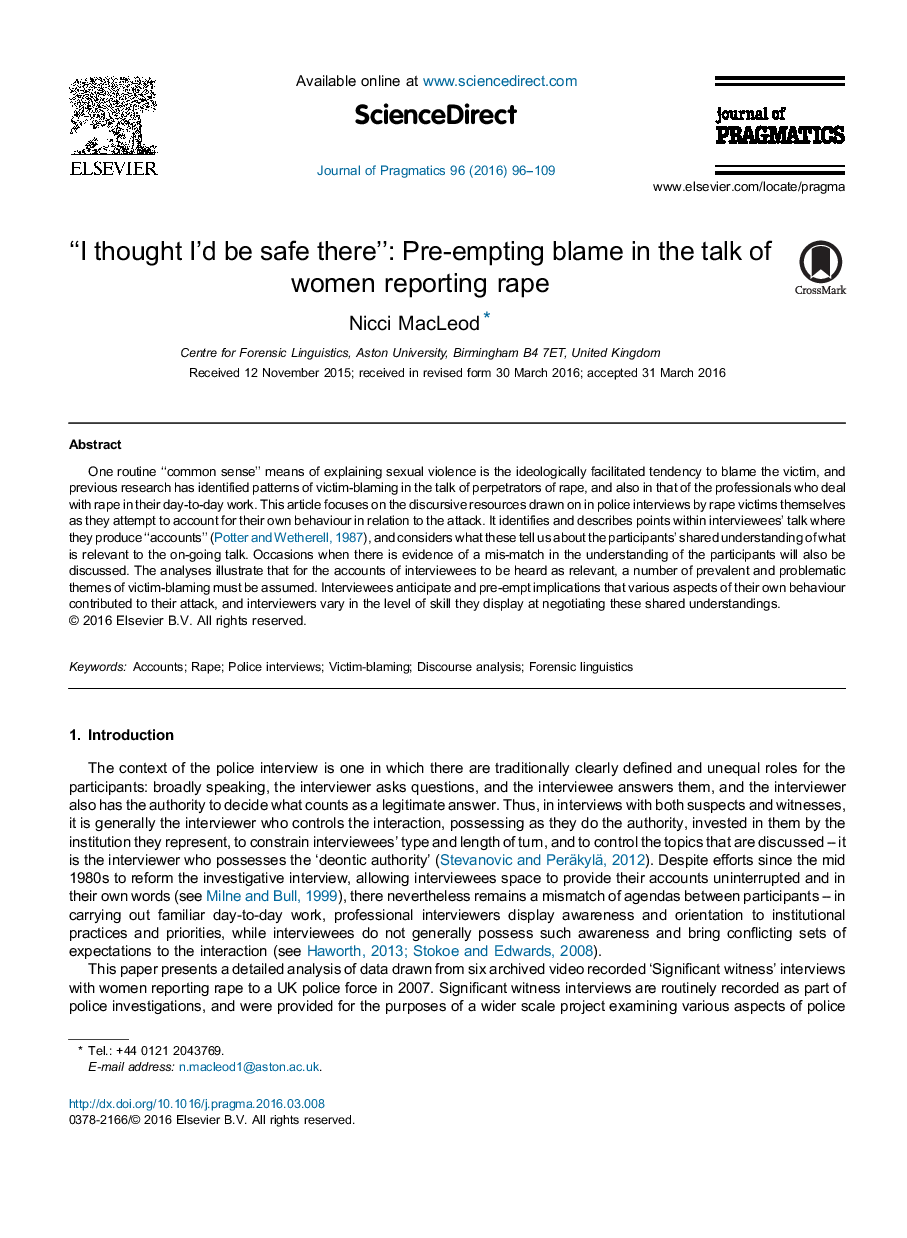| Article ID | Journal | Published Year | Pages | File Type |
|---|---|---|---|---|
| 932476 | Journal of Pragmatics | 2016 | 14 Pages |
•Police-witness investigative interviews with women reporting rape are analysed.•Points when interviewees can be heard to account for their own behaviour are isolated.•Accounts are shown to relate to prevalent and problematic themes of victim-blaming.
One routine “common sense” means of explaining sexual violence is the ideologically facilitated tendency to blame the victim, and previous research has identified patterns of victim-blaming in the talk of perpetrators of rape, and also in that of the professionals who deal with rape in their day-to-day work. This article focuses on the discursive resources drawn on in police interviews by rape victims themselves as they attempt to account for their own behaviour in relation to the attack. It identifies and describes points within interviewees’ talk where they produce “accounts” (Potter and Wetherell, 1987), and considers what these tell us about the participants’ shared understanding of what is relevant to the on-going talk. Occasions when there is evidence of a mis-match in the understanding of the participants will also be discussed. The analyses illustrate that for the accounts of interviewees to be heard as relevant, a number of prevalent and problematic themes of victim-blaming must be assumed. Interviewees anticipate and pre-empt implications that various aspects of their own behaviour contributed to their attack, and interviewers vary in the level of skill they display at negotiating these shared understandings.
